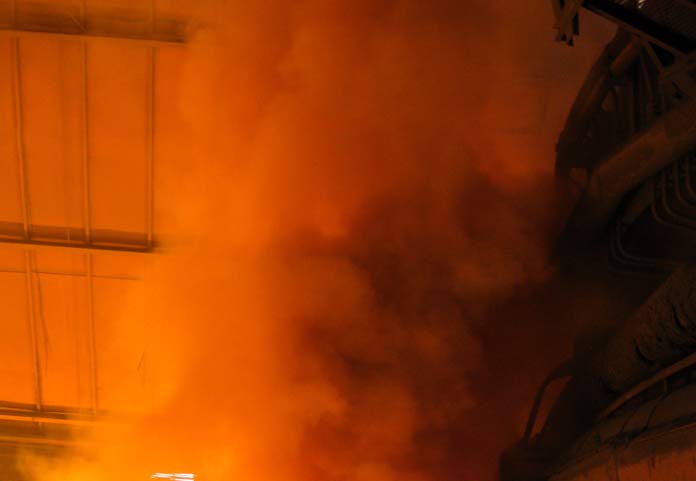About an hour northeast of Madison, WI, the food pantry in the tiny village of Cambria has been receiving so many donations that they had to temporarily relocate to the school. A few blocks away, at the National Exchange Bank, a fund has been established to handle incoming financial contributions.
The overflow of donations mirrors the outpouring of support that the close-knit community has shown to the families of Didion Milling employees who were injured or killed in a May 31 explosion.
A memorial has been placed at the entrance of Didion Milling honoring the 4 employees who died in an explosion there late last month pic.twitter.com/f0kV2ZIrS5
— Hannah (@Hannah_nbc15) June 13, 2017
Didion processes corn and corn by-products for ethanol plants. Authorities have not yet determined what caused the explosion, which occurred around 11 p.m. Sixteen employees were inside the lab building at the time of the blast, only two of them made it out safely.
Pawel Tordoff, 21, Duelle Block, 27 and Robert Goodenow, 53, were killed in the blast. Angel Reyes, 46, died June 6 from injuries he sustained that night. Four of the other ten employees who were injured suffered third-degree burns and other explosion injuries. They remain hospitalized at the University of Wisconsin hospital in Madison.
Before the fatal May 31 explosion, Didion had been cited by the U.S. Occupational Safety and Health Administration (OSHA) for safety violations, according to the agency’s records. Inspectors noted fall risks twice in 2014, a dust explosion risk in 2013, an amputation incident in 2012 and dust explosion risks twice in 2010.
Grain dust is highly combustible and can be ignited by sparks from any source including friction or overheating of machinery parts, or static electricity. Preventing buildup of grain dust is key to reducing the risk of fire and explosion, experts say.

“The two most important factors in preventing an explosion are keeping the facilities clean and the equipment in good working condition,” said Kingsly Ambrose, assistant professor of agricultural and biological engineering at Purdue University’s Department of Agricultural and Biological Engineering, who recently published a study about grain dust explosions. “If the facility is clean, then the amount of potential fuel is minimized. If the equipment is in good working condition, there is less chance of ignition.”
If you are interested in making a contribution, make checks payable to the Old Mill Foundation Didion Benefit Fund and send it to:
Old Mill Foundation Didion Benefit Fund
National Exchange Bank
118 West Edgewater Street
P.O. Box 338
Cambria, WI 53923
